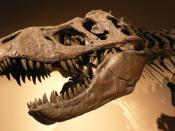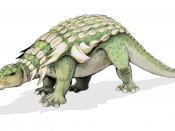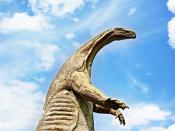DINOSAURS
Dinosaur is the name of large extinct reptiles of the Mesozoic Era, during which they were the dominant land animals on Earth. The term was proposed as a formal zoologic name in 1842 by the British anatomist Sir Richard Owen, in reference to large fossil bones unearthed in southern England. The various kinds of dinosaurs are classified in two formal categories, the orders Saurischia and Ornithischia, within the subclass Archosauria.
The first recorded dinosaur remains found consisted of a few teeth and bones. They were discovered in 1882 in Sussex, England, by an English doctor, Gideon Mantell, who named them iguanodon. About the same time, other fossil teeth and bones were found near Oxford, England, by Rev. William Buckland. These were named Megalosaurus. Thousands of specimens have since been discovered nearly worldwide.
Different types of dinosaurs varied greatly in form and size, and they were adapted for diverse habitats.
Their means of survival can only be identified from their fossil remains, and some identifications are in dispute. They ranged in weight from 4 to 6 lb., in the case of the compsognathus, and up to 160,000 lb., in the case of the brachiosaurus. Most dinosaurs were large, weighing more than 1,100 lb., and few weighed less than 100 lb. Most were herbivores, but some saurischians were carnivorous. The majority were four-footed but some ornithischians and all carnivores walked on their hind legs.
Always classified as reptiles, dinosaurs have traditionally been assumed to have been reptilian in their physiology, cold-blooded, and ectothermic. In recent years several different lines of evidence have been interpreted as indicating that dinosaurs may have had warm blood and high rates of metabolism, comparable to birds and mammals. Evidence supporting this view includes upright posture and carriage; mammallike microscopical structure of bones; skeletal features...


